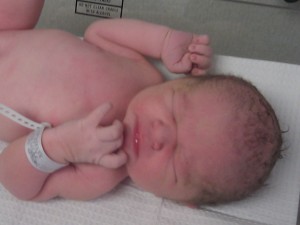[Part I of my application for Candidacy in the PC(USA) Ordination Process]
I have long believed that all of God’s children are called, as related by the Westminster Confession,
out of that state of sin and death in which they are by nature, to grace and salvation by Jesus Christ: enlightening their minds, spiritually and savingly, to understand the things of God, taking away their heart of stone, and giving unto them an heart of flesh; renewing their wills, and by his almighty power determining them to that which is good; and effectually drawing them to Jesus Christ; yet so as they come most freely, being made willing by his grace. (BoC 6.064)
This confessional statement implies, and I affirm, that Christian calling of any and every vocation is truly a “full-time job” encompassing all aspects of life and work, drawing on the resources of mind, heart, and will. For this reason, I resist the sometimes popular linking of Christian Vocation solely with the work of the pastor, the chaplain, the Christian educator, or other positions traditionally within the employment of the church. Plumbing, accounting, programming, parenting, military or government service—all of these are Christian vocations when undertaken by God’s children.
The confessions also speak of vocation in relation to the church (8.23, 9.45). In this light, it is a shared task, done in community with other Christians in order to fulfill God’s purposes and usher in God’s Kingdom. I believe that this particular communal aspect of Christian vocation, affirmed in the confessions, is under-represented in most discussions of Christian vocation.
The statements above reflect my priorities in understanding Christian vocation: It encompasses the entirety (mind, heart, will) of individual Christians of any profession or occupation, and it is to be done in community. Within these parameters, however, there is still a place for the Minister of Word and Sacrament. The Second Helvetic Confession notes that God “has always used ministers for the gathering…establishing…governing…preservation”of the church, and “always will…so long as the Church remains on earth” (5.142). This is appropriately tempered a few paragraphs later with the enjoinder that “we must beware that we do not attribute too much to ministers and the ministry” because only “God moves the hearts of [people]” (5.144).
My own sense is that we live in a culture where individuality is a virtue—where CEOs, athletes, and film stars are accorded celebrity status for their roles in what are actually “team” endeavors. This has filtered into the church as well, where “successful” pastors become best-selling authors, “professionals” in the art of church building, revered, studied, and imitated apart from their teams (congregations). A corrective is in order, and the cautions of the confessions must be heeded once more. Fortunately, the financial difficulties in which many contemporary churches find themselves play a helpful role here: Increasingly, churches must rely on the diverse vocational/occupational talents of congregants to do many of the things (and typically not those things enumerated by the Confessions as the realm of the minister) once done by full-time ministers who have dropped to part-time status. Ministers themselves are also increasingly becoming “tent-makers” and pursuing vocational roles outside the employment of the church.
Within this context—clinging to reformed tradition while acknowledging contemporary culture—my own ministerial calling is to be the proverbial “guide on the side” rather than the “sage on the stage.” This does not necessarily mean I will not pursue full-time employment in a church setting, and it does not excuse me from providing leadership and vision within any congregation I serve. But it does mean I am called to be flexible and open to creative employment arrangements. It also means a large part of my role will be to help individuals in a congregation to see themselves in the light of their own Christian vocations, and to contribute my own unique gifts and talents alongside them as we fulfill our Christian vocation together in community.
 Baby Locke 3.0 is no longer in beta! Jonah Sawyer Mitchell Locke was born this morning at 9:58am, weighing 9lbs 2oz, and measuring 21 inches long. He was born on Friday, December 16th (the last day of final exam week in the fall semester of my last year in seminary) at Princeton Medical Center, in Princeton, New Jersey.
Baby Locke 3.0 is no longer in beta! Jonah Sawyer Mitchell Locke was born this morning at 9:58am, weighing 9lbs 2oz, and measuring 21 inches long. He was born on Friday, December 16th (the last day of final exam week in the fall semester of my last year in seminary) at Princeton Medical Center, in Princeton, New Jersey. The Red Pony, followed by a little bit of Isaac Asimov’s novel Foundation. Later, after we were back in our hospital room and after Amy and Jonah finally got to spend some quality time together, I read him J.R.R. Tolkien’s translation of the Book of Jonah from the 1966 edition of the Jerusalem Bible. Somewhere in the midst of all that, I also recited Lewis Carrol’s Jabberwocky to him.
The Red Pony, followed by a little bit of Isaac Asimov’s novel Foundation. Later, after we were back in our hospital room and after Amy and Jonah finally got to spend some quality time together, I read him J.R.R. Tolkien’s translation of the Book of Jonah from the 1966 edition of the Jerusalem Bible. Somewhere in the midst of all that, I also recited Lewis Carrol’s Jabberwocky to him.